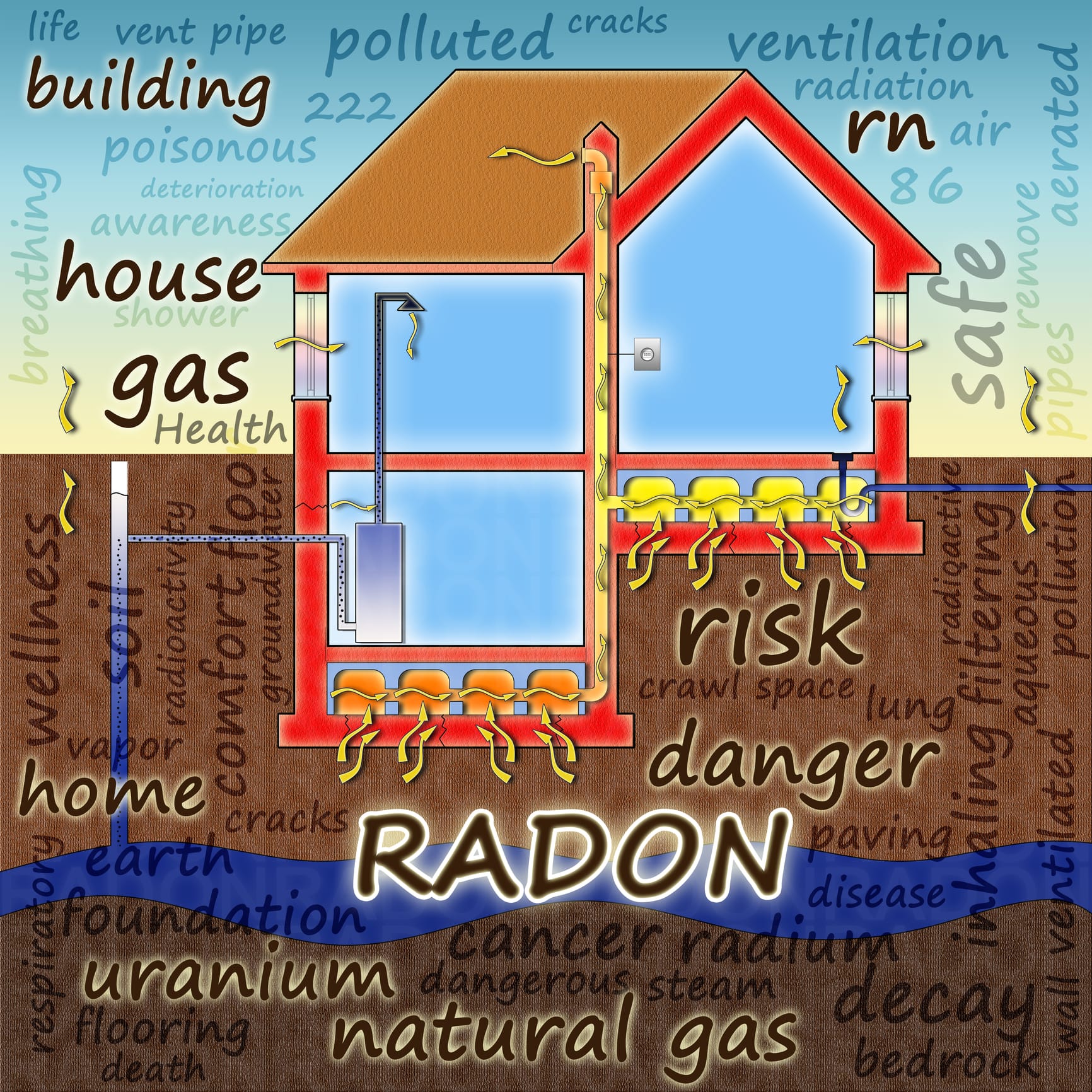Radon: What is it? How to Get Rid of It
What is radon gas? Is it harmful?
Is radon really bad for you?
Breathing radon over time increases your risk of lung cancer. Radon is the second leading cause of lung cancer in the United States. Nationally, the EPA estimates that about 21,000 people die each year from radon-related lung cancer. Only smoking causes more lung cancer deaths.
The initial step in reduction is testing to see if the indoor-air and/or residential water radon concentrations should be decreased. The World Wellness Company's International Radon Project has advised an action degree of 100 Bq/m3 (2.7 pCi/l) for radon in the air.
Scientist focused on 2,500 Finns who had actually resided in the exact same houses-- having low to high interior radon levels-- for twenty years; they made sure to change for smoking cigarettes. " Our results do not suggest raised danger of lung cancer cells from indoor radon." The study indicates that indoor radon exposure does not appear to be a vital reason for lung cancer cells. Radon is a contaminated gas produced normally from the ground.
Is radon mitigation really necessary?
When radon gas enters the body, it exposes the lungs to small amounts of radiation. In small quantities, experts say this is harmless. However, in persistent exposures or larger quantities, radon can damage the cells of the lining of the lungs, increasing a person's chance of developing lung cancer.
It's difficult to get to an absolutely no percent threat in locations where radon prevails, yet reducing the gas degree as long as is viable is worth the effort. Smoking stays the leading reason for lung cancer cells in the US. Nevertheless, radon is usually the 2nd largest factor to the condition in any type of given year. When you combine a smoking cigarettes routine with a house that has dangerous radon degrees, you can elevate your danger for lung cancer cells 9 times over. Comprehending simply what is radon screening isn't just necessary if you're a smoker or there's a smoker in your house, but it's essential for every person.
- Lung cancer cells risk increases 16% per 2.7 pCi/L increase in radon direct exposure.
- Radon gas is a naturally-occurring result of the radioactive degeneration of Uranium in the dirt.
- Depending on your geographic place, the radon levels of the air you breathe beyond your residence may be as high as 0.75 pCi/L.
- The United States EPA has actually placed it clearly, specifying, "Any kind of radon exposure has some threat of causing lung cancer cells.
How do you eliminate radon?
Possible symptoms include shortness of breath (difficulty breathing), a new or worsening cough, pain or tightness in the chest, hoarseness, or trouble swallowing. If you smoke and you know you've been exposed to high levels of radon, it's very important to quit smoking.

Individuals that smoke or made use of to smoke have an also greater possibility of establishing lung cancer if https://www.openlearning.com/u/donald-qaeue1/blog/RadonTheCancer/ they are exposed to radon. You might just consider what you're revealed to outdoors when you assume regarding air pollution. Yet interior air high quality in your home issues, as well, as well as it can be majorly affected by the existence of a contaminated gas called radon. This gas can accumulate to dangerous levels and raise your threat for establishing lung cancer-- even if you do not smoke, according to the American Lung Organization.
What are the symptoms of radon in your home?
If a person has been exposed to radon, 75 percent of the radon progeny in lungs will become "harmless" lead particles after 44 years. When an alpha particle damages a cell to make it cancerous, the onset of lung cancer takes a minimum of 5 years but most often 15 to 25 years, and even longer.
Believing you reside in an area not affected by radon is just among the myths regarding this dangerous gas. We assessed all material pertaining to radon on state federal government Web sites using a standard data collection form.
How long does it take for radon to cause cancer?
Fact: You will reduce your risk of lung cancer when you reduce radon levels, even if you've lived with an elevated radon level for a long time. Keep in mind that radon levels below 4 pCi/L still pose some risk and that radon levels can be reduced to 2 pCi/L or below in most homes.
